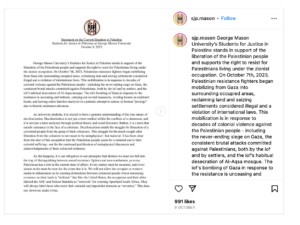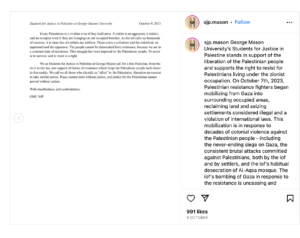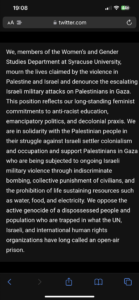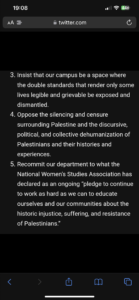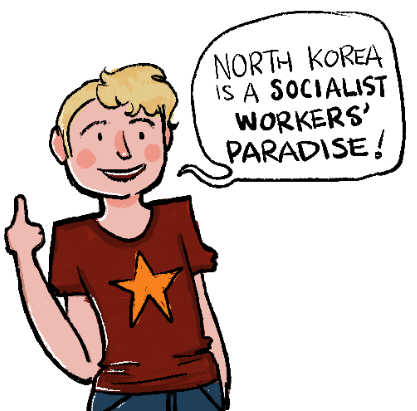I’m sick of finding writing on disability that’s inaccessible to the general public, much less people with cognitive disabilities. If you’re resorting to academic jargon and social justice buzzwords, then you’re not speaking to the majority of your audience.
For example, Sins Invalid’s 10 Principles of Disability Justice is a US-centric mess of academic jargon and buzzwords. (The Arc of Minnesota tried valiantly to turn this list into plain language, but it’s still too abstract—it still includes expressions like “bodyminds” instead of “bodies and minds,” for example.)
You can get an idea of their writing style with their introductory sentence:
From our vantage point within Sins Invalid, where we incubate the framework and practice of disability justice, this emerging framework has ten principles, each offering opportunities for movement building…
Why can’t you just say “Sins Invalid has created a set of 10 definitions of disability justice and ways to incorporate these principles in your organising work?”
It doesn’t get any better as you kep reading, either:
Leadership of the most impacted: When we talk about ableism, racism, sexism & transmisogyny, colonization, police violence, etc., we are not looking to academics and experts to tell us what’s what — we are lifting up, listening to, reading, following, and highlighting the perspectives of those who are most impacted by the systems we fight against. By centering the leadership of those most impacted, we keep ourselves grounded in real-world problems and find creative strategies for resistance.
We already have a catchier expression for this principle: “Nothing about us without us.” “Leadership of the most impacted” sounds clunky. Also, I would say “transphobia” rather than the specific “transmisogyny,” since the term is more recognisable—and because transphobia affects trans men and nonbinary people, too. Classism belongs on this list as well. Let’s try to make this more memorable:
Nothing about us without us: We don’t need academics or “experts” to explain injustice or discrimination to us when we’ve gone through it ourselves. We need to listen to people who have gone through injustice and discrimination themselves: disabled people, women, people of colour*, LGBTQ+ people, working-class and poor people, and victims of police violence. They know themselves best and are the experts on their own lives.
And it continues…
Anti-capitalist politics: Capitalism depends on wealth accumulation for some (the white ruling class), at the expense of others, and encourages competition as a means of survival. The nature of our disabled bodyminds means that we resist conforming to “normative” levels of productivity in a capitalist culture, and our labor is often invisible to a system that defines labor by able-bodied, white supremacist, gender[-]normative standards. Our worth is not dependent on what and how much we can produce.
The last sentence needs to be the first, and there needs to be an actual definition of what “capitalism” means. Activists will know what it means, but the average Westerner (and American in particular) is going to think of capitalism as a good thing, since they’ll contrast it with the Soviet Union and North Korea. Also, the definition of ruling classes is obviously US-centric. In many countries, the ruling classes may not be white, since most countries that aren’t in Europe or don’t have ruling classes descended from European colonists. As for Europeans themselves, most countries’ ruling classes belong to the same ethnicity as the working classes, even if there are immigrants from Africa or Asia living there.
Here’s my quick-and-dirty plain-language translation:
Our worth doesn’t come from how hard we work, or whether we can work at all. Our lives matter no matter what. But we live in a capitalist society. In capitalism, regular people have to work hard so that corporations, landlords, and banks earn money from their employees’ work. These owners keep all the money for themselves and don’t do much work themselves. They just want you to do all the work. Under capitalism, we have to compete with each other to get jobs and get enough money to eat. Because we’re disabled, it’s harder for us to work. People don’t always see the work we can do, or they don’t think it’s important. Capitalism hurts disabled people.
Here’s another winner of a quote, complete with some “noble savage” idealisation of pre-contact North America:
Interdependence: Before the massive colonial project of Western European expansion, we understood the nature of interdependence within our communities. We see the liberation of all living systems and the land as integral to the liberation of our own communities, as we all share one planet. We work to meet each other’s needs as we build toward liberation, without always reaching for state solutions which inevitably extend state control further into our lives
Again, there are a lot of assumptions that aren’t going to be shared by your average American, much less a disabled one who’s been exposed to only conventional narratives about US history. In a country rife with brands like “Rochester Colonial,” “Swiss Colony,” and “Imperial Margarine,” you need to clarify why colonialism is bad or cut out the mention altogether.
Here’s another quick-and-dirty plain-language fix:
Interdependence: We all need each other to live and grow. Unfortunately, a lot of us learn that we have to just rely on ourselves and not get help. But everyone needs to work together to protect ourselves, our community, and our planet. When we work together, we won’t need as much help from the government, since the government often has too much control over our lives.
Once I turn this into plain language, it’s easier to identify a political position that may give some progressives and socialists pause: the idea that disabled people should find support within the community rather than seeking help from the government. This part sounds specific to anarchism and doesn’t belong in a general set of principles. (Yes, I do point out biases even when they match mine!) Also, what do they mean by “liberate”? That word is thrown around a lot, but they’re never clear what they mean.
In general, the 10 Principles of Disability Justice are a well-meant attempt to combat systemic ableism, but the academic jargon, buzzwords, and identitarian focus prevent it from becoming the manifesto it could be.
* I hate the expression “people of colour,” but I’m using it here to avoid writing a long list of ethnic groups or using the expression “racial and ethnic minorities,” which this crowd tends to hate.
